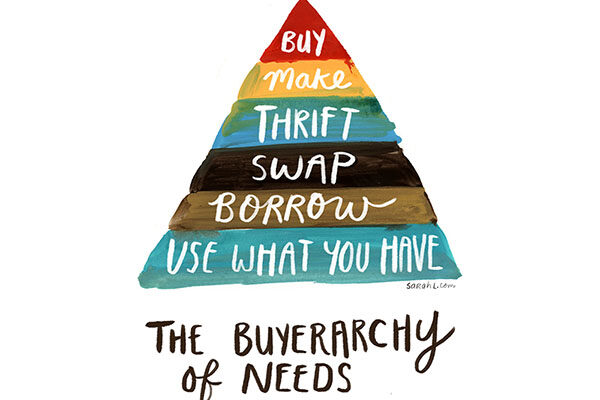
Sustainable living is truly a journey. It’s all about the little things you do consistently, and that’s why I LOVE writing these types of blog posts for you. But I’ve also found that you love them too! Previously I gave you 19 Sustainable Living Tips for Beginners (check it out if you haven’t already), now here’s twelve more!
- Replace, don’t add
It’s a good practice to hold off on buying until you’ve depleted what you have (or it’s broken). Keep waste (and spending) at a minimum!
2. Avoid washing small loads
Rather than washing several small loads, trying waiting a bit longer until you accumulate a full load. When it comes to full loads versus several small loads, washing a full load is the more efficient option. By simply reducing the number of loads you wash each week, you’ll consume less water, energy, and money.
3. Bundle errands
Get more efficient by grouping your errands into fewer convenient trips. This saves you time, gas, and money while reducing your carbon footprint by producing fewer emissions.
4. Buy local
Supporting local businesses and locally made products has several benefits for you, the local economy, and the environment – it’s an act that encompasses the main facets of sustainability. Buying local creates jobs and boosts the local economy. And, when it comes to food, local produce is usually the higher quality alternative. Locally grown food is usually fresher and more nutritious as it has not travelled overseas, or been kept in storage extensively. Shorter travel and storage time translates into lower environmental impact.
5. Prepare more of your meals
Preparing more of your meals at home can be beneficial on several fronts. By reducing takeout, packaging waste is reduced, it saves money, and facilitates healthier food choices as you determine the contents of your meals.
6. Keep your spaces organised
From the fridge to the closet, organised space can result in significant savings. Having a dedicated space for your items allow them to be easily identified when you need them. Clutter can result in a lot of waste and cause you to spend on items you don’t need… because you can’t see the ones you have! Lol.
7. Keep it clean
In addition to keeping your spaces organised, it’s important to establish a regular cleaning routine. By keeping your appliances and equipment in good condition, they operate more efficiently, and you avoid unnecessary repair and replacement costs. Food storage areas like the refrigerator need to be kept clean. This reduces the accumulation of bacteria and mould that can result in rapid food spoilage and waste.
8. Plan your purchases
Avoid splurges! By planning your purchases, you buy better, spend less, and reduce waste. You prioritize the items you NEED and avoid overconsumption in the process!
9. Buy less
The idea here is to make do with what you have and see shopping as a last resort means of fulfilling your needs. There are several alternatives by which you can fulfill your needs without making a new purchase. Check out my post on the Buyerarchy of Needs for more in-depth guidance on how you can buy less and avoid overconsumption.
10. Acquire multipurpose items
When you do buy, seek out products that allow for a variety of uses. Multipurpose items give more bang for your buck, save you a ton of space, and reduce waste. My ottoman is my ABSOLUTE fave multipurpose item! It stores my linens, provides a seat when I’m putting on my makeup, and is also an occasional bedside table. Baking soda is also one of my go-tos for cooking/baking, cleaning, and laundry.
11. Buy better
When you prioritize quality, the things you own stick around for a LOOONG time. You don’t have to keep replacing them as you would lesser alternatives. This will save you A LOT OF MONEY in the long run (sometimes you don’t have to wait that long to realize the savings). For example, high-quality clothing may have a larger sticker price but gives you more rotations and savings in the long run. You’re also less likely to be ashamed to wear them after a couple washes.
12. Decorate with plants
The value of plants in any space goes way beyond aesthetics. Studies show that plants can have tremendous benefits indoors. Plants act as natural air filters and can, therefore, improve air quality in your home or office, no matter the size. They also reduce stress, promote relaxation, and even reduce road or background noise.




Welcome back! We missed you.
I’m more sustainable than I taught :). Thanks for the tips